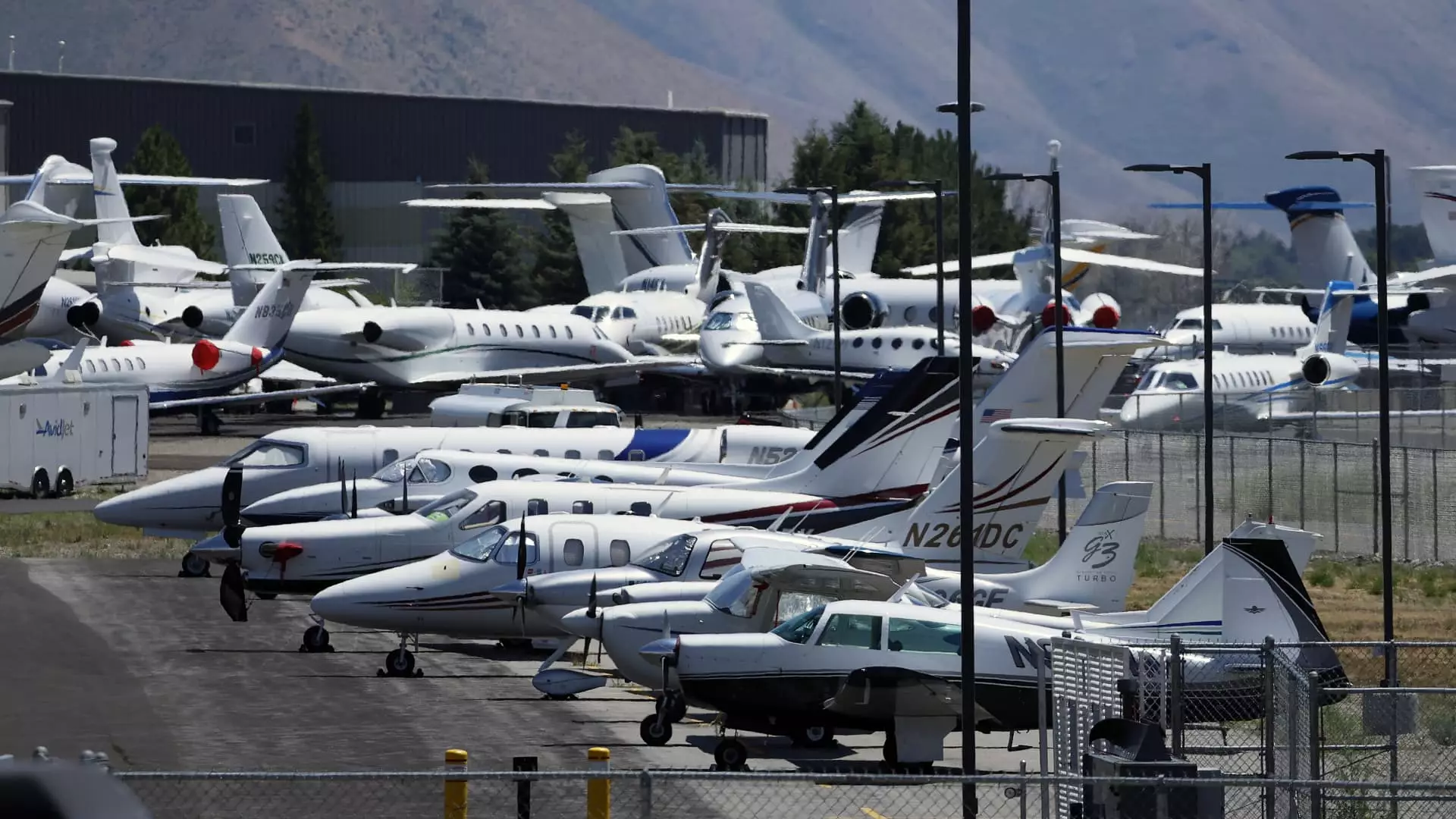The recent surge in private jet sales, fueled by the reinstatement of bonus depreciation, seems convenient on paper—an advantageous policy designed to stimulate a sluggish high-end market. Yet, beneath this façade lies a complex web of economic and social implications that warrant critical examination. Are we truly witnessing a sign of genuine economic vitality, or merely the artful manipulation of tax loopholes to serve an elite few? The answer leans heavily towards the latter. By creating short-term incentives that expedite purchases, the government inadvertently fosters a cycle of superficial prosperity, benefitting a small minority while masking deeper issues of economic inequality and environmental sustainability.
This narrative of economic revival hinges on the perception of wealth as a sign of strength. However, it’s crucial to question whether a boom driven by tax incentives, which primarily benefits the ultra-rich, is sustainable or desirable in a balanced economy. The private jet industry’s post-pandemic resurgence, for instance, exemplifies this skewed focus: wealthier individuals and corporations are encouraged to indulge in luxury assets that serve as status symbols far removed from societal needs. Such policies tend to divert resources that could instead bolster public infrastructure, healthcare, or environmental initiatives, highlighting a troubling prioritization of elite interests over broader societal well-being.
The Illusion of Stimulus and Its Real Cost
The appeal of bonus depreciation incentives is undeniable from a fiscal perspective: immediate write-offs could ostensibly boost investment and economic activity, but at what hidden cost? The reality is that these tax benefits often perpetuate inequality. Wealthy individuals and corporations, who are most likely to own and operate private jets, are the primary beneficiaries. They leverage tax laws to reduce their taxable income substantially, enabling affluent owners to acquire or upgrade luxury assets with relative ease. Meanwhile, the broader economy gains little from these transactions, which are largely transfer payments within a small, privileged class.
Furthermore, the private jet industry’s growth masks a troubling truth about environmental impact. Private planes consume significantly more fuel per passenger than commercial flights, exacerbating climate change—a concern that cannot be dismissed lightly. Policies that incentivize such consumption under the guise of economic stimulus exacerbate ecological inequities, burdening vulnerable populations with the long-term consequences of environmental degradation. The focus on short-term tax benefits undermines the urgency of transitioning to sustainable modes of transportation and energy use essential for societal resilience.
Distorted Markets and the Mirage of Economic Evidence
The supposed economic benefits from these incentives are often overstated, primarily because market signals are being artificially manipulated. As the data indicates, the pre-owned jet market is swelling with inventory—more planes are for sale, and they are lingering longer on the market. This suggests a mismatch between supply and demand, hinting at a bubble rather than genuine growth. The hype around private jet purchases tends to peak at the end of the year, capitalizing on last-minute tax strategies rather than authentic market demand driven by necessity or innovation.
This pattern reveals the fragile nature of these so-called “growth” periods. The surge is less about expanding the industry healthily and more about strategic timing for tax benefits. When the incentives fade or the tax laws change again, the bubble will burst, leaving behind excess inventory, depreciated assets, and disappointed investors. Such volatility destabilizes the industry and underscores how fragile the veneer of economic vitality can be when built on transient tax incentives rather than substantive demand or technological progress.
The Ethical Dilemma of Favoring Privilege
At its core, the revival of this market through tax loopholes raises profound ethical questions. Society’s wealth distribution is already skewed, with the wealthiest segments amassing disproportionate influence and resources. Creating policies that disproportionately benefit the already privileged perpetuates systemic inequality. Private jet ownership, once considered a symbol of extreme affluence, now risks becoming an emblem of economic disparity, illustrating how policy decisions can inadvertently reinforce social divides.
The debate should not be about whether these incentives stimulate economic activity but whether such activity aligns with broader societal values. Should tax codes be designed to favor luxury industries that perpetuate environmental harm and inequality? Or should policies prioritize equitable growth, sustainable development, and social cohesion? For those committed to vain notions of progress, these questions are inconvenient; but for a society striving toward fairness and responsibility, they are fundamental.
The recent tax incentives for private jets exemplify how economic policies can sometimes serve narrow interests, fostering superficial prosperity while sidestepping critical issues of inequality and environmental sustainability. It’s a stark reminder that policy tools—if not carefully scrutinized—can deepen societal divides rather than bridge them, revealing a need for more thoughtful, equitable fiscal strategies that serve the many, not just the few.

